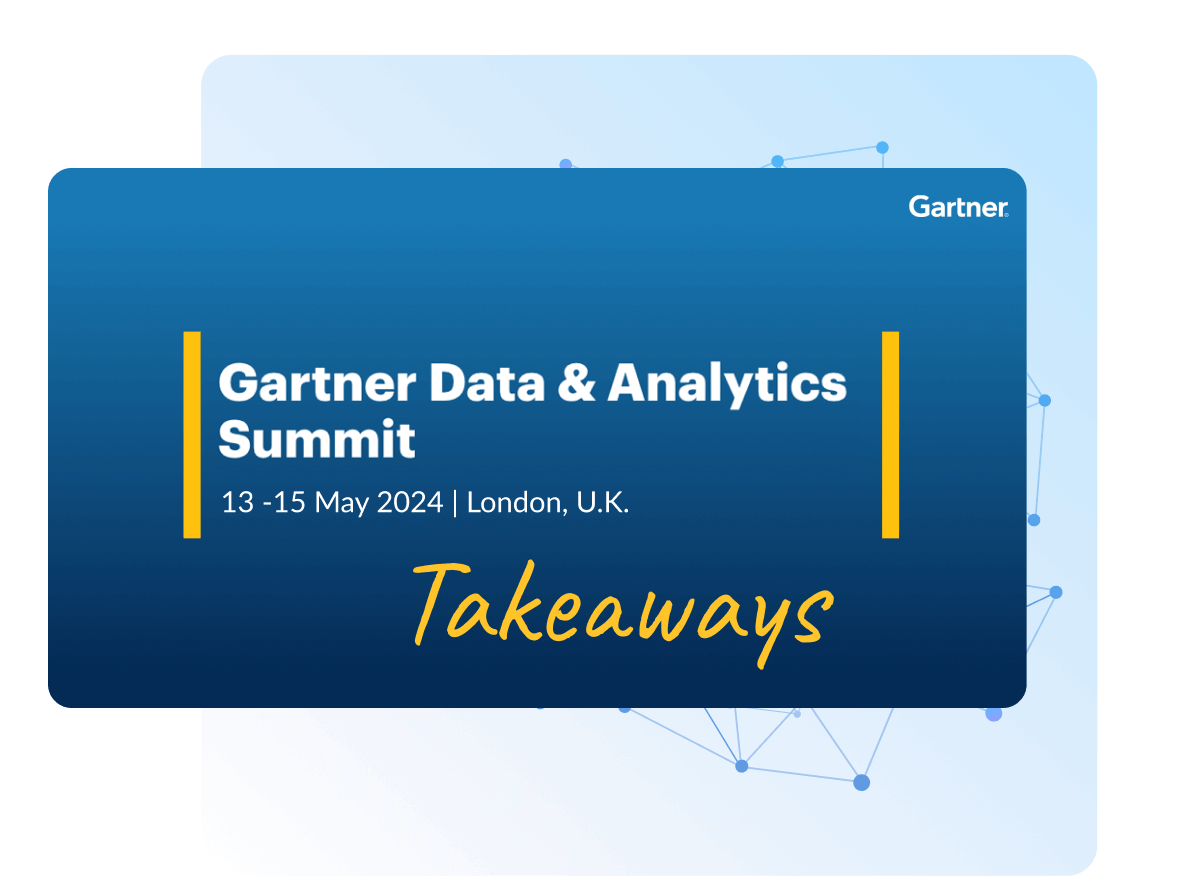Discover how a bimodal integration strategy can address the major data management challenges facing your organization today.
Get the Report →Key Takeaways from Gartner Data & Analytics Summit: London

As soon as I found out that CData was sponsoring the Gartner Data & Analytics Conference in London, I asked to be put on the list of potential representatives to attend, not only because it would give me the opportunity to travel to London, but also give me more opportunities to interact with leaders and decision makers in the data and analytics ecosystem and gain a deeper understanding of the problems organizations are facing and the strategies and solutions they're using to solve those problems.
While much of the messaging was similar to the message at Gartner D&A Orlando, I did gather some new takeaways:
Organizations must continue to work together
Adam Ronthal, Gartner VP Analyst, and Alys Woodward, Gartner Sr Director Analyst, delivered the opening keynote, continuing to highlight the importance of collective intelligence – the communication, collaboration, and coordinated problem solving organizations need to drive business outcomes.
Ronthal also remarked on the importance of simply discussing data, analytics, and AI (artificial intelligence), noting that organizations who did so "outperformed their peers 80% of the time over the past nine years." When stakeholders show a willingness to work with other stakeholders, they build trust and increase both literacy and usage of data that helps their organizations to drive their business outcomes.
Data access is critical
Scott Burnett, Sr Principal Data Architect for JP Morgan Chase & Co, delivered a session on streamlining data access, describing his organization's implementation of a virtual data fabric, and sharing best practices. His analogy for data access struck me as particularly poignant.
He presented his family as the data users, requesting a new data product, a pizza. Burnett acknowledged that he could go directly to a farm to source all the raw ingredients, like wheat, milk, pork, and tomatoes. Or he could turn to experts to process the raw ingredients into more usable ingredients like dough, cheese, sauce, and pepperoni. Or even more conveniently, he could turn to experts further "downstream" to acquire a finished product (the pizza itself). Burnett acknowledged that different users in an organization could use data at different stages to drive outcomes, ultimately calling for organizations to implement a data strategy that allowed exactly the right stakeholders to have access to exactly the right data, at exactly the right time. For JP Morgan Chase, this meant a data fabric built using data virtualization, but any data integration strategy can facilitate data access.
It's never too late to teach an old dog new tricks
Given the increasing number of services and platforms available to organizations to solve data and analytics problems and the proliferation of legacy systems, it wouldn't surprise me to learn that many organizations were reluctant to modernize their data systems. However, based on my conversations with attendees at CData's booth, many data leaders are more than ready to adopt the latest technologies, assuming the technology aligns with their data strategy and continues to meet any governance, security, and/or compliance requirements.
I heard from several leaders who are making a number of modernization efforts – from as simple as moving from on-premises SQL Server to Azure SQL Server to complex as moving from legacy systems to a modern warehouse like Snowflake. Having the right connectivity solution can help ease the IT pain and decrease go-to-market time of modernization efforts.
In short, data and analytics experts suggest that modern organizations:
- Ensure they are building practices that encourage and reward communication amongst all stakeholders.
- Implement a data strategy that gets the right data to the right people at the right time.
- don't need to be afraid to modernize their organization, knowing that there are solutions out there to help.
We plan on attending Gartner Conferences moving forward, so we look forward to seeing you there! If you aren't a part of the CData Community, join today to continue (or start!) your data journey.






